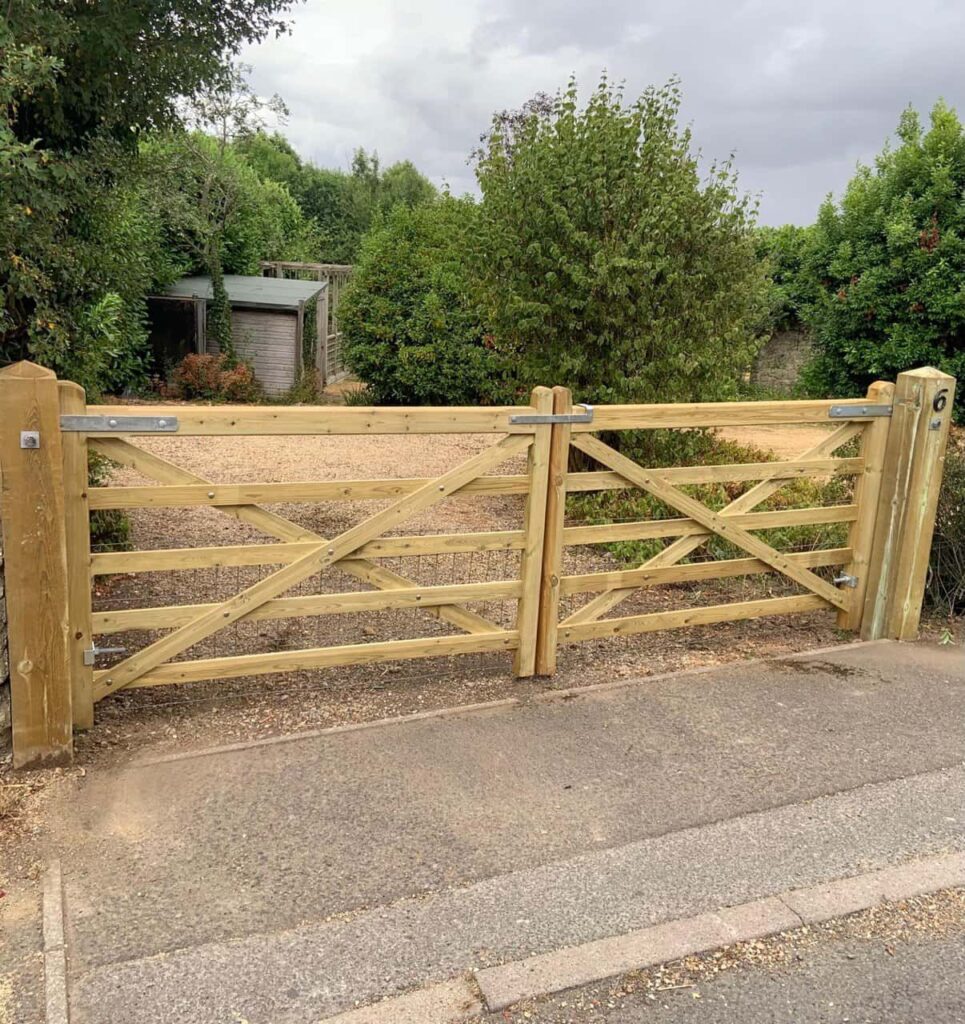The Best Stock Fencing Options for Diverse Livestock Needs
When it comes to safeguarding livestock, quality stock fencing is essential for both the animals’ safety and the property’s security. Different types of livestock require different fencing options to cater to their size, behaviour, and grazing habits. Here’s a guide on the best stock fencing options for diverse livestock needs, helping landowners and farmers choose the most suitable fencing for their specific requirements.
Understanding the Needs of Different Livestock
From cattle to sheep, horses to poultry, each type of animal has distinct needs in terms of fencing. Robust and carefully designed fences not only keep animals safe but also prevent them from straying or interacting with predators. An ideal fence balances durability, height, and flexibility while being cost-effective to install and maintain.
Top Stock Fencing Options
1. Wire Mesh Fencing for Sheep and Goats
- Benefits: Wire mesh fencing is highly effective for smaller animals, such as sheep and goats, who might otherwise squeeze through or under standard fencing. The tight mesh design ensures they remain safely enclosed.
- Durability: Galvanised wire mesh is weather-resistant, ensuring it stands up to damp and varied climate conditions without rusting.
- Additional Considerations: Goats, in particular, are known for testing boundaries, so the mesh needs to be robust and well-secured. A height of 4 feet or more is advisable to prevent climbing.
2. Barbed Wire for Cattle
- Benefits: Cattle require fencing that can withstand significant weight and pressure, as they are likely to lean on or push against it. Barbed wire serves as a psychological deterrent, encouraging cattle to keep a safe distance.
- Durability: Barbed wire fencing is both durable and cost-effective, ideal for large pastures.
- Additional Considerations: Ensure the barbed wire is properly tensioned to avoid sagging. Regular checks are also essential to ensure cattle safety and to repair any breaks in the wire.
3. Electric Fencing for Temporary and Permanent Solutions
- Benefits: Electric fencing offers flexibility for both temporary enclosures and permanent pastures. It is suitable for all types of livestock and works well as a training tool for animals who need to learn boundary respect.
- Durability: Electric fences are designed to withstand weather elements, though regular maintenance checks are crucial to ensure they remain powered and functional.
- Additional Considerations: Although effective, electric fences require more upkeep, including battery or solar-powered chargers, to ensure continual operation. They should be installed with caution to protect younger animals from accidental shocks.
4. Post and Rail Fencing for Horses
- Benefits: Horses are best contained with post and rail fencing, which is both secure and highly visible, reducing the risk of injury. Unlike wire or barbed fencing, post and rail designs are less likely to cause cuts or scratches, which is essential for animals with delicate skin.
- Durability: Typically made from treated timber or durable PVC, post and rail fencing is built to withstand the elements and daily interactions.
- Additional Considerations: Horses tend to chew on wood, so treated or alternative materials may be preferable. Regular maintenance will ensure rails are firmly in place and free from damage.
5. High-Tensile Wire Fencing for Mixed Livestock
- Benefits: High-tensile wire fencing is a versatile option that accommodates a range of livestock, including cattle, sheep, and goats. It is more robust than standard wire fencing, making it ideal for larger farms with varied animal types.
- Durability: High-tensile fencing is resilient to both animal pressure and weather exposure, withstanding years of use without significant maintenance.
- Additional Considerations: Proper tensioning is critical to maintaining the integrity of high-tensile fencing. It’s also advisable to add additional layers or wires to enhance security for smaller animals.
Choosing the Right Fencing for Your Needs
When selecting stock fencing, consider the following factors:
- Animal Behaviour: If your livestock tend to roam or test boundaries, consider fencing options like barbed or electric wire that discourage close contact.
- Weather Conditions: In regions with extreme weather, opt for weather-resistant materials, such as galvanised or high-tensile wire, which can withstand both moisture and temperature fluctuations.
- Maintenance Requirements: For landowners with limited time for upkeep, low-maintenance fencing such as wire mesh or post and rail may be the best option.
Conclusion
Selecting the right stock fencing can be the difference between a secure, low-maintenance farm and one with constant fencing repairs and concerns. By understanding the needs of your livestock and the advantages of each fencing option, you can invest in a solution that protects your animals, your property, and your peace of mind.
At Fast Fix Fencing Paddock Wood, we specialise in providing fencing solutions that suit a wide range of livestock needs. Our expertise ensures that each fence is installed to the highest standards of durability and safety. For more information or to discuss your fencing requirements, contact us today.
Call us on: 01892 362 090
Click here to find out more about Fast Fix Fencing Paddock Wood
Click here to complete our contact form and see how we can help with your fencing needs.

